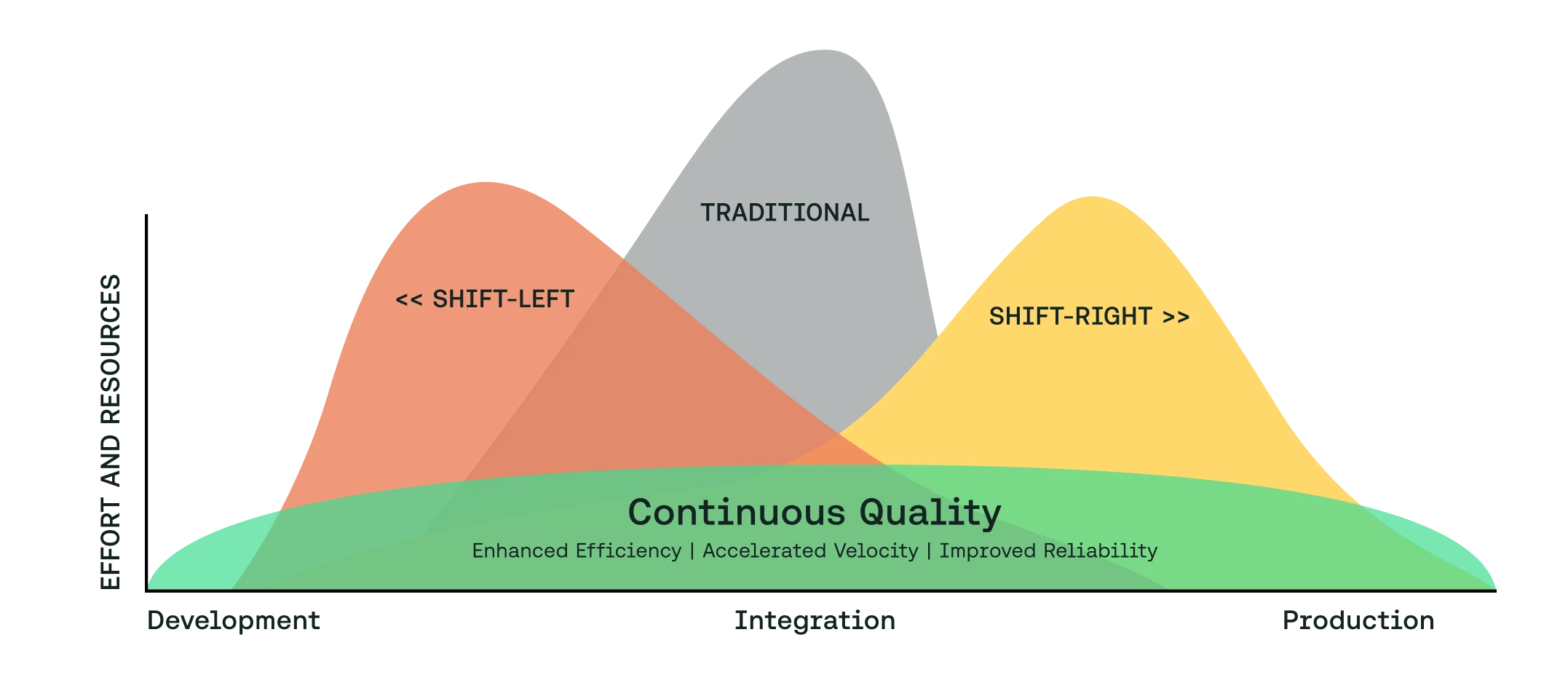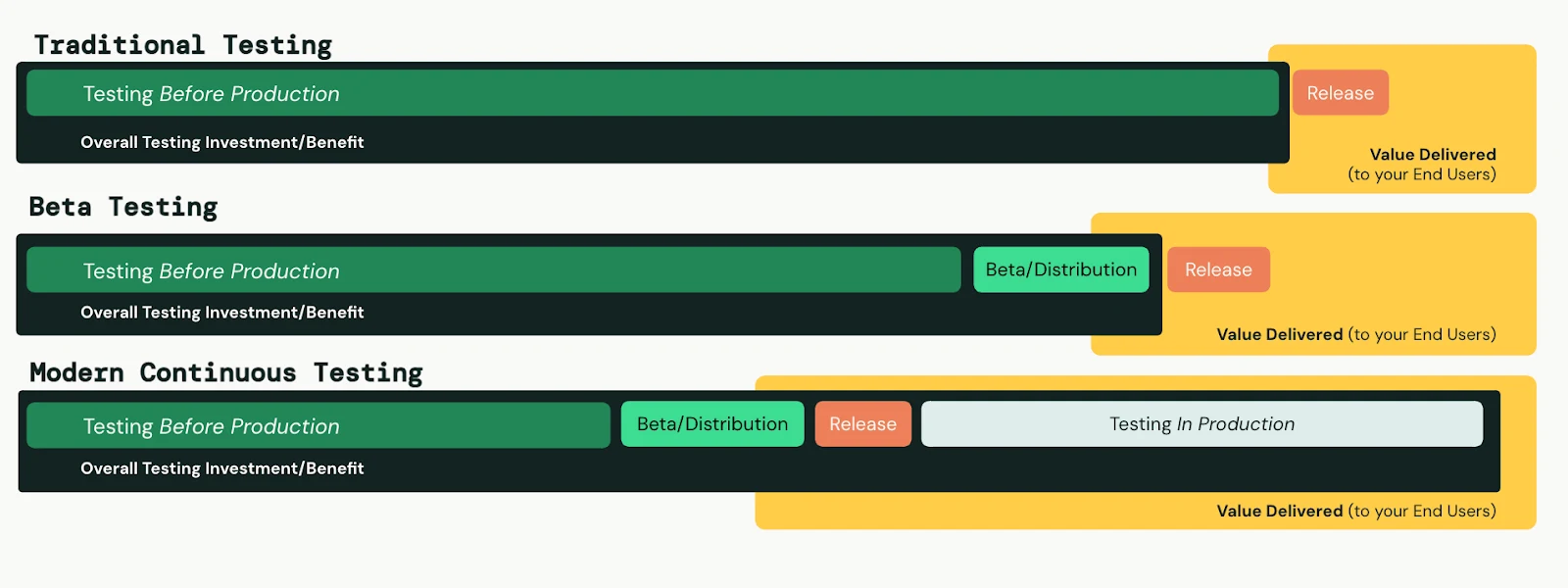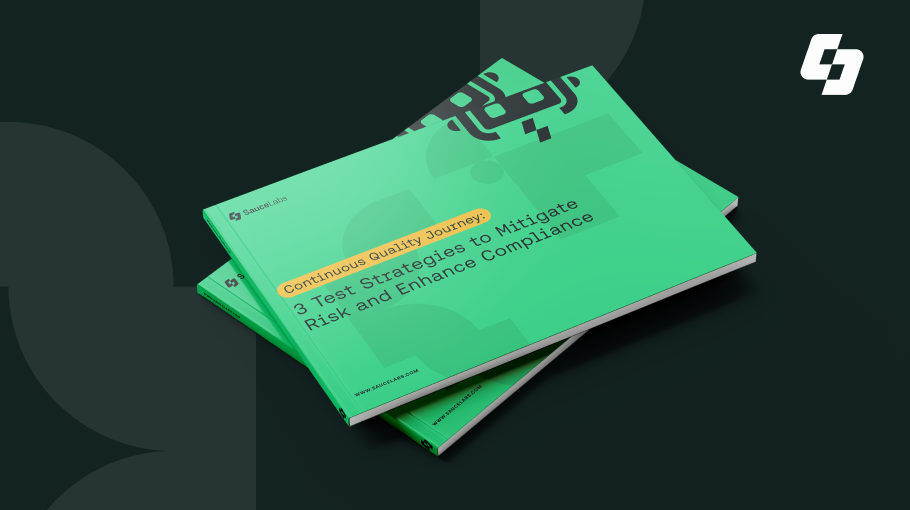We’ve all felt the frustration of when apps crash or freeze. So it’s not surprising that over half of people will uninstall an app after just one glitch.
This reality underscores a crucial truth: software quality is the foundation for any successful business. But how do we keep quality high when digital products must hit the market faster than ever? The answer lies in continuous quality.
What is continuous quality exactly?
According to Gartner® research, “Continuous quality significantly improves an organization's ability to serve and delight its customers. It provides the framework for operational excellence that drives value, supports the realization of business outcomes for customers and streamlines operational processes.”*
Traditionally, testing was often seen as a bottleneck — necessary but often slowing down the release of new features and updates. However, the software testing landscape is changing quickly. The adoption of "shift left" and "shift right" strategies means testing is no longer confined to the middle of the development cycle. Instead, continuous testing means that it is integrated throughout — from the earliest stages of development right through to post-prod monitoring.
Gartner® further predicts that by 2026, 70% of organizations will have moved towards a continuous testing model — an increase from just 20% last year. While this indicates a major shift towards a continuous testing strategy, many organizations don't know how to implement it effectively.
“By 2026, 70% of software engineering teams will aim to improve software quality by adopting a continuous quality strategy, up from 20% in 2023.”
Gartner
What Are The Benefits Of Continuous Quality
There are many benefits when it comes to continuous quality and testing from seamless code to a happy team. By integrating quality checks throughout the development lifecycle, teams can identify and address issues early, foster collaboration, and ensure alignment with user needs.
Early Defect Detection: Identify issues before they escalate, reducing costs and effort associated with late fixes
Improved Code Reliability: Create more stable software with better performance
Increased Productivity: Streamline processes to keep your teams motivated
Swift User Feedback Response: Deliver quicker adjustments based on user needs and market changes
More Happy Customers: Meet user expectations by reducing risk in the development lifecycle
Find your testing sweet spot
Adopting continuous quality isn't just about testing more, it's about testing smarter. Organizations must find their sweet spot for continuous testing, using different testing tools based on their own strategy. Finding the sweet spot for testing means balancing the speed to market with effective bug detection. That is where error budgets come into play, a concept borrowed from Google's site reliability engineering (SRE) practices. Error budgets guide teams to take calculated risks that encourage innovation without compromising reliability.
While we can't catch every bug, we can strategically manage risk to deliver better products faster
When it comes to finding that sweet spot, every industry and business is different. Each with their own unique needs that shape their testing strategies. For companies in compliance-heavy sectors like finance and healthcare, rigorous testing before release is non-negotiable. The potential costs of releasing buggy software can be catastrophic.
Conversely, companies in gaming or retail industries may prioritize their speed to market, leveraging beta testing and error monitoring to refine and continuously improve their products in real-world production settings, based on real user feedback.
As more companies adopt continuous quality strategies, staying competitive means embracing these changes. Implementing a centralized testing platform that integrates seamlessly with existing tools and workflows is key. This not only speeds up the development process, enhances efficiency, and mitigates risk, but also enhances overall software quality.
**Gartner, Innovation Insight: Continuous Quality, By Joachim Herschmann, Thomas Murphy, Jim Scheibmeir, 17 October 2023.








